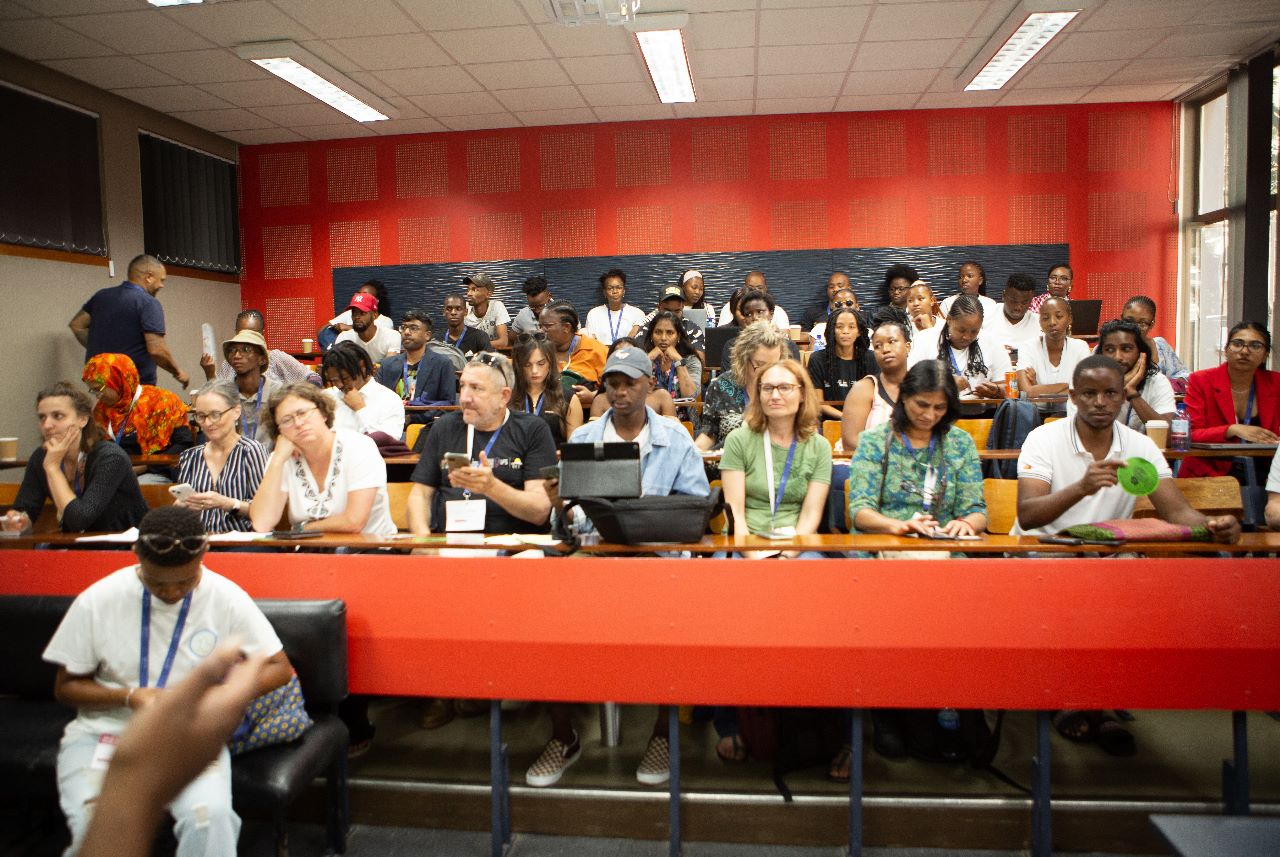5th National Global Change Conference
Contributing to open dialogues on prominent planetary changes, the Alliance for Collaboration on Climate and Earth System Science (ACCESS), a Council for Scientific and Industrial Research (CSIR)-hosted platform, attracted attention at the 5th National Global Change Conference. During the four-day event, held from 30 January to 2 February 2023, ACCESS shared in formation and debated on current local research and development initiatives that highlight some of the most pressing climate change challenges, while discussing the overall possible measures that can be taken to tackle the worsening impact of climate change.
As co-hosts and chairs of the three open sessions, Dr Neville Swejid and Dr Carl Palmer led engagements that consisted of vibrant presentations and panel exchanges, all of which evoked the prior noted themes and their associated dynamics. ACCESS hosted two side events focused on research on our changing climate. While the first side event, which was co-hosted with the South African Weather Service (SAWS) and the Application of knowledge for the management of extreme climate events (APECX) project focused on predicting extreme events, the second one, co-hosted with the Department of Health (DoH), the South African Medical Research Council (SMRC), and the National Institute for Communicable Diseases, focused on the impacts of climate change on health. The final ACCESS session explored tools to help produce more climate change researchers, specifically the ACCESS Habitable Planet Education and Training Programmes.
Palmer says that universities continue to play an important role in dealing with the impacts of climate change, and transdisciplinary approaches to this complex phenomenon require inculcating the culture of multidisciplinary education and adaptability in educational institutions. “Earth system science is like medicine for the planet. It can be seen as a discipline that brings together different sciences to provide the knowledge tools needs to better look after our planet,” he says. “It is about linking together all the experts to paint a picture and learn the story of how the planet works.”
The ACCESS research programmes do exactly this – bring together scientists from different disciplines to solve climate-related research problems. Globally observed trends in extreme climate events such as the KwaZulu-Natal (KZN) floods and wildfires in Australia have inspired ACESSS to strive towards forming a research consortium. Advancing plans for this encouraged ACCESS scientists to share their bold ideas during the session on extreme climate events. The delegates concluded that there was a need for a national working group on extreme events and Sweijd will take this proposal forward.
The Climate and Health (REACH) ACCESS programme, together with the DoH, the Department of Forestry, Fisheries and the Environment, the SAMRC, and the SAWS have initiated talks with the research community on the establishment of a Research Alliance on Climate and Health. Swejid reported that the group heard several engaging research presentations from local students and an inspiring keynote lecture from Madeleine Thomson, head of Impacts and Adaptation at the Wellcome Trust - a charitable foundation focused on health research.
ACCESS’s flagship Habitable Planet programme, which focuses on education and training, held a review session where Palmer shared the implementation lessons learnt from its successes and challenges, such as the effect ACCESS has had on young researchers and scholars, and its efforts to promote inclusion in Earth science. Two prominent alumni from the programme, Aaliyah Shah and Weliswa Kunene, spoke about the work that they have completed in researching the impact of the programme and on delivering three years of Habitable Planet Workshops through outreach programmes in schools in KZN, respectively.
Furthermore, at the conference, posters and presentations on the state of the Southern Ocean were contributed from CSIR-hosted Southern Ocean Carbon and Climate Observatory research team members, along with a talk on the impact of extreme wind on operations at the Port of Cape Town from CSIR specialists in coastal engineering and port infrastructure.
The 5th National Global Change Conference was organised by the Department of Science and Innovation (DSI), in partnership with National Research Foundation and the University of the Free State, and offered an opportunity for delegates to share knowledge on and debate local research and development initiatives being implemented under the Global Change Grand Challenge – identified in the DSI’s Ten-Year Innovation Plan, as well as in the 2019 White Paper on Science, Technology and Innovation.

Contact Person: Dr Carl Palmer, @email,